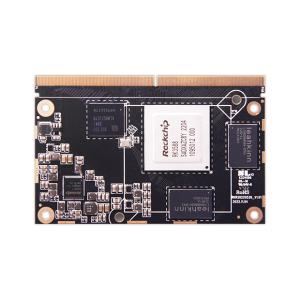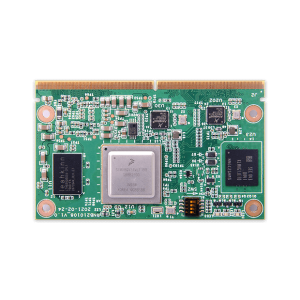System on Module vs. Traditional Development: Which Is Right for You?
System on Module vs. Traditional Development: Which Is Right for You?
Blog Article
Edge computing has emerged as a innovative trend in the computer business, permitting faster data running and decreased latency by taking computational energy closer to wherever information is created. A key development advancing that change could be the rise of system on module arm which are small, efficient, and versatile research models built to integrate seamlessly into personalized hardware systems.

The Position of Computer on Segments in Edge Research
Computer on Modules have grown to be crucial in side computing for their capability to improve hardware style while maintaining robust control capabilities. Based on a current record by MarketsandMarkets, the world wide side processing market is predicted to grow from $40.84 thousand in 2021 to $132.11 billion by 2026, with COMs playing an important role in this expansion.
These modules are specially impactful in industries requesting real-time data examination at the edge. As an example, the transport business utilizes COMs in autonomous vehicles for real-time decision-making, while wise towns utilize them to handle systems like traffic flow and energy distribution.
Lightweight and Adaptable Design
One of the standout faculties of Pc on Segments is their compact and modular design. This allows designers to include high-performance research power in to side devices without the need for extensive hardware redesign. A survey by IoT Analytics found that 68% of organizations applying IoT options consider modular hardware like COMs critical for quick arrangement and scalability.
COMs also support custom-made designs, making them suited to a wide selection of programs, from commercial automation to healthcare. Their ability to adjust to particular demands is just a operating power behind their use in side processing systems.
Energy Performance and Efficiency
Edge processing devices frequently perform in settings with confined power resources. COMs address that concern by providing optimized energy effectiveness without diminishing on computational strength. A study by Allied Market Research outlined that energy-efficient edge processing solutions are predicted to dominate the market through 2030, placing COMs as a critical element for reaching that goal.
Additionally, with advancements in processors and incorporated artwork, COMs today deliver the performance required for AI-driven purposes at the edge. This not merely improves real-time functions but additionally decreases dependence on centralized cloud systems.
Why the Future Goes to COMs
With global information technology projected to achieve 175 zettabytes by 2025, side processing is defined to become more important than ever. Pc on Adventures offer an flexible, energy-efficient, and scalable alternative for control this influx of data. Their relevance across diverse groups like healthcare, production, and telecommunications just underscores their vital role in shaping the future of side computing.
COMs are no more merely a scientific tendency; they're the backbone of next-generation side methods operating advancement and efficiency across the globe. Since the need for side processing keeps growing, so can the significance and affect of COMs in that fast developing landscape. So, it's safe to express that Pc on Adventures are here to stay and will carry on shaping the ongoing future of side computing.

Conclusion
Edge research is transforming the way in which we method and employ information, with Pc on Modules at the lead of the revolution. Their lightweight design, flexibility, energy effectiveness, and performance make them a perfect solution for processing real-time knowledge at the edge. As industries significantly count on side computing because of their procedures, COMs will enjoy an essential role in operating innovation and efficiency in these systems. Report this page